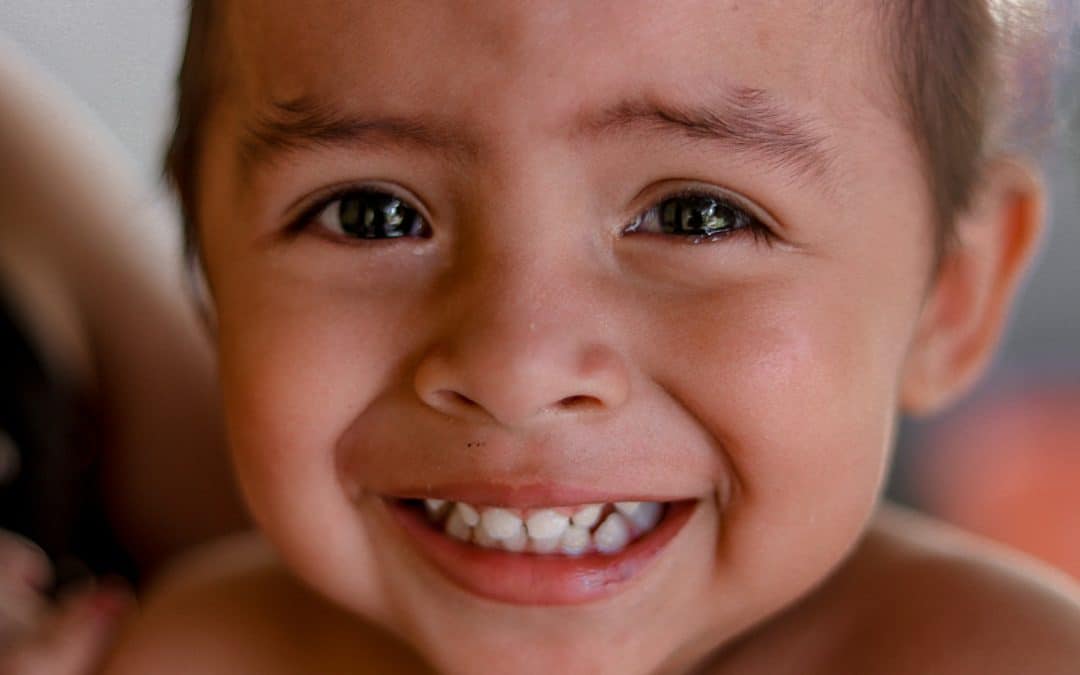Baby teeth, also known as primary teeth, play a significant role in your child’s health and development. These small teeth might seem temporary, but they are crucial for many reasons. They help children eat properly by allowing them to chew food, which is essential for getting the right nutrients as they grow. Additionally, baby teeth help with speaking clearly, which is important as children learn to communicate effectively.
Beyond these basics, baby teeth hold space in the mouth for adult teeth. This guidance is essential for developing a well-aligned set of permanent teeth. If a baby tooth is lost too early, neighboring teeth can drift into the empty space, causing crowding or misalignment issues later on. These functional aspects make caring for baby teeth vital, even though they will eventually fall out.
The Role of Baby Teeth in Child Development
Baby teeth, also known as primary teeth, play a crucial role in a child’s development. These temporary teeth help children learn how to chew, speak clearly, and hold space for their future permanent teeth. Though these teeth eventually fall out, they serve an important purpose during childhood.
Eating properly is one of the main functions of baby teeth. They allow children to bite and chew food, which is essential for getting the right nutrients. By chewing their food thoroughly, children develop healthy eating habits and proper digestion. Baby teeth also play a significant role in speech development. They help children form sounds and words correctly. As kids grow, they practice speaking using these teeth, which helps improve language skills and confidence.
Another important function of baby teeth is guiding the alignment and placement of permanent teeth. They act as placeholders in the jaws, keeping space available for the adult teeth that will one day replace them. If a baby tooth is lost too early, the nearby teeth may shift into the empty space, causing alignment issues for the incoming permanent teeth.
By understanding the importance of baby teeth, parents can focus on maintaining their child’s oral health as an essential part of overall development.
Common Problems Affecting Baby Teeth
Baby teeth can face several challenges that can impact a child’s oral and physical health. It’s important to recognize these common problems to address them early and maintain good dental hygiene.
One major issue is cavities, which occur when bacteria in the mouth feed on sugars and create acids that erode the tooth enamel. Cavities are common in baby teeth due to children’s fondness for sweets and sometimes inadequate brushing. They can cause discomfort and, if left untreated, lead to infections or abscesses.
Decay is another problem affecting baby teeth. It not only damages teeth but can also affect the overall health of growing children. Tooth decay can lead to pain and difficulty eating, which impacts nutrition and development. Regular dental checkups can help detect decay early and prevent it from worsening.
Here are other common problems to watch for:
1. Teething Discomfort:
– Swelling and soreness when new teeth cut through the gums.
2. Thumb Sucking:
– Prolonged sucking habits can affect tooth alignment and jaw development.
3. Early Tooth Loss:
– Losing baby teeth too soon can misalign permanent teeth and cause crowding.
By recognizing and addressing these issues, parents can ensure their child’s baby teeth remain healthy, supporting their overall growth and development. Taking proactive steps can mitigate these problems and foster a lifetime of good oral health habits.
Caring for Baby Teeth at Home
Proper care of baby teeth is essential to ensure they are healthy and support a child’s development. Establishing good oral hygiene habits early makes future dental care easier. There are simple routines and tips that parents can follow to maintain healthy baby teeth.
Start by brushing your child’s teeth twice a day. Use a soft-bristled toothbrush and a tiny amount of fluoride toothpaste. For infants, you can clean their gums gently with a soft, damp cloth until their first tooth appears. As more teeth come in, ensure you are reaching all surfaces to prevent cavities.
Diet also plays a crucial role in maintaining dental health. Limiting sugary snacks and drinks helps protect teeth from decay. Encourage more water and tooth-friendly snacks like fruits, vegetables, and dairy products, which promote strong teeth.
Additional tips include:
1. Regular Flossing: After two teeth touch, flossing helps remove plaque between teeth.
2. Using a Tooth-Friendly Cup: Transition from a bottle to a sippy cup to reduce prolonged sugar exposure from milk or juice.
3. Model Good Habits: Let children watch you brush and floss, making dental care a family routine.
Teaching and practicing these habits early lays the foundation for healthy permanent teeth and oral health.
When to Visit the Dentist for Baby Teeth Checkups
Visiting the dentist regularly is vital for maintaining your child’s oral health. Dental checkups should start when the first tooth erupts or by the child’s first birthday. Early visits help the dentist monitor the growth and development of your child’s teeth and jaws.
During their visit, the dentist will conduct a gentle examination. They look for signs of tooth decay and check how teeth are developing. This visit is also a great time for parents to ask questions and learn more about caring for their child’s teeth.
Regular dental visits offer several benefits:
1. Professional Cleaning: Dentists can remove plaque and tartar that brushing alone might miss.
2. Early Detection of Issues: Identifying problems like cavities or misaligned teeth early can prevent more extensive treatment later.
3. Building Comfort with Dental Visits: Regular checkups reduce anxiety and create a positive experience.
Routine checkups are not just about maintaining a healthy smile—they play a key role in overall health and well-being. Make dental visits a normal part of your child’s healthcare routine.
Conclusion
Baby teeth might be small, but they play a big role in your child’s health and development. From helping with speech and eating to setting the stage for adult teeth, they deserve attention and care. By monitoring for signs of dental problems and maintaining healthy dental practices, you ensure your child’s smile grows strong and bright.
Establishing a dental care routine for your children is crucial. At Serenity Dental, we’re here to help you navigate your child’s oral health journey. Schedule an appointment for dental exams today to ensure your child’s teeth are on the right track for lifelong health and happiness. Our team is ready to support you at every step with expert care and advice.

